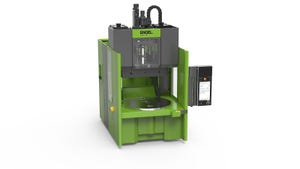BASF upgrades Pudong plant to supply food grade plastics
Plastics and chemicals supplier BASF has upgraded the company's engineering plastics compounding facility in Pudong, China, so that now two Ultramid polyamide grades are compounded in China under Good Manufacturing Practice (GMP) conditions which comply with the European Union (EU) and U.S. Food & Drug Administration (FDA) requirements for food contact. Specifically, the supplier is compounding its polyamide 6.6 grades of Ultramid A3K FC and Ultramid A3EG3 FC (15% glass fiber reinforced) under the stringent GMP conditions at the Pudong facility.
July 26, 2011
Plastics and chemicals supplier BASF has upgraded the company's engineering plastics compounding facility in Pudong, China, so that now two Ultramid polyamide grades are compounded in China under Good Manufacturing Practice (GMP) conditions which comply with the European Union (EU) and U.S. Food & Drug Administration (FDA) requirements for food contact.
Specifically, the supplier is compounding its polyamide 6.6 grades of Ultramid A3K FC and Ultramid A3EG3 FC (15% glass fiber reinforced) under the stringent GMP conditions at the Pudong facility.
In addition to the EU and FDA regulations, these grades also comply with food contact guidelines for Japan and China. "Our engineering plastics find widespread use in the food sector," according to Andy Postlethwaite, BASF's sr. VP engineering plastics Asia Pacific. "Producing these grades is of special significance to our customers in China who wish to export and gain acceptance for their products in major markets like Europe, the U.S.A., and Japan."
BASF named one such customer, Yangjiang Tansung (Group) Co. Ltd., which injection molds and markets kitchenware. Polyamide is processed to produce, for example, spatulas, cooking spoons and other kitchenware requiring high heat resistance plus strength. The company needed material that complies with all relevant regulations for plastic materials in food contact in the EU. This included the overall and specific migration requirements from the Commission Regulation (EU) No. 10/2011 on plastic materials and articles intended to come into contact with food and, especially for polyamides, the new Commission Regulation (EU) 284/2011 for PAA (primary aromatic amines).
"We decided to use Ultramid A3K FC for our kitchenware products as it has been tested and complies with the GMP (for food contact articles) conditions," commented Chunyao Huang, the company's GM. "The regulation related to PAA was critical for us in order to export our products to Europe."
For the Ultramid FC (food contact) grades, formulations and manufacturing processes were modified to come into compliance with the legal food contact regulations. Sample materials are then sent to a third party testing laboratory and BASF provides its customers with the requisite test results to confirm the materials meet EU requirements. The company that introduces it into the market must ensure conformity of the final product with the given regulations.
About the Author(s)
You May Also Like


